Eva Emery Dye Papers
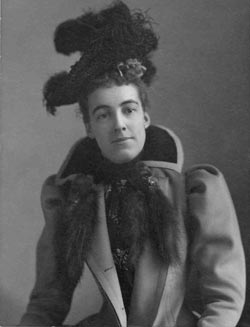
The papers of one of Oregon’s most prominent literary figures, who popularized Oregon Country history and Sacajawea as a heroine of the Lewis and Clark Expedition. Eva Emery Dye (1855-1947) was a native of Illinois who worked her way through Oberlin College as an elementary school teacher. She married lawyer Charles Henry Dye in 1882 and came with him to Oregon City in 1890. She soon became a prominent figure in Oregon’s literary and historical circles, and her extensive writings include McLoughlin and old Oregon (1900) and The conquest : the true story of Lewis and Clark (1902).
Abigail Scott Duniway Papers
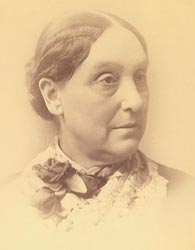
Abigail Scott Duniway, born October 22, 1834, was an indefatigable leader in the women’s suffrage movement in Oregon and the Northwest. In her life she encountered both personal setbacks and political obstacles. She suffered poor health, money problems, and opposition from her own brother Harvey Scott, editor of the Portland Oregonian. She met with local resistance to women’s suffrage, witnessed the consistent failure of women’s suffrage referendums on state ballots, and grappled with divisions with Eastern suffrage organizations. Yet she persisted, and her steadfast determination paid off in 1912 when Oregon became the seventh state in the Union to pass a women’s suffrage amendment. Governor Oswald West asked Duniway to write the proclamation for his signature. Duniway had the honor of being the first woman to register to vote in Oregon. Abigail Jane Scott Duniway died on October 11, 1915.
Avel L. Gordly Papers
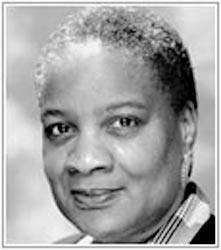
Avel L. Gordly was the first African American woman to be elected to the Oregon State Senate, representing Oregon Senate’s 23rd District from 1997 to 2009. Prior to her service as a Senator, Gordly was a member of the Oregon House of Representatives from 1991 to 1996. A native of Portland, Gordly is the daughter of a Union Pacific Pullman porter and a working mother active in women’s organizations. She holds a Bachelor of Science degree in the Administration of Justice from Portland State University and completed the Program for Senior Executives at the John F. Kennedy School of Government, Harvard University.
Edith Green Papers
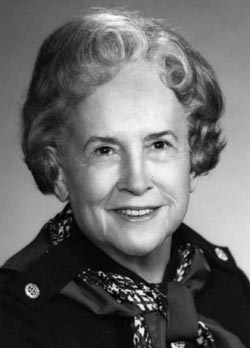
Edith Green served ten consecutive terms in the United States House of Representatives, from 1955 to 1974, as the Representative for the 3rd District of the State of Oregon. A schoolteacher turned politician, she was active in all aspect of Democratic Party politics and was especially interested in educational issues and women’s rights.
Carrie Hervin Papers
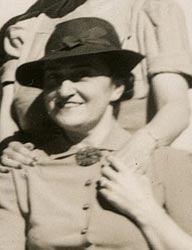
Carrie Hervin (1893-1989) found herself “pegged” when she attended a meeting of the League of Women Voters. The Portland League wasted no time in employing her leadership skills and she became president during World War II. With the demand for women’s volunteer hours stretched thin by the needs of the war – rolling bandages, serving on alert systems, etc., she recognized an opportunity to infuse the organization with purpose. When told that “If you can just hold the organization together until the end of the war, that is all that can be expected.” Hervin responded, “If that is all you want, I will never accept the presidency. If the League of Women Voters does not have a purpose to serve during a time of war, it should just disband.”
Darlene Hooley Papers
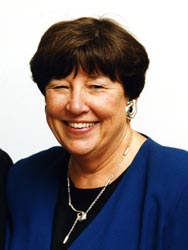
Darlene Olson Hooley (1939- ) entered local politics in 1976 because the city of West Linn was slow to respond when her son was injured on a public playground. She became the first woman member of the West Linn city council and worked for family safety and protections for working families. From 1980 until 1987 Hooley represented Clackamas County in Oregon State’s Legislature, where she focused on bills dealing with public kindergartens, equity pay and reform of the state’s welfare system. Hooley again broke new ground in 1987 when she became the first woman elected to the Clackamas County board of commissioners. In 1996 she was elected a Democratic member of the U.S. House of Representatives and was a member of the One Hundred Fifth to the One Hundred Tenth Congresses (January 3, 1997-January 3, 2009).
Esther Pohl Lovejoy Papers
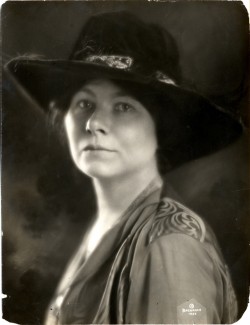
Esther Pohl Lovejoy was the second woman to graduate from the University of Oregon Medical School and the first woman to practice. Her career in medicine included publi health, internationl servie with the American Red Cross and the American Women’s Hospital Service. Lovejoy was a strong advocate for women’s rights and helped lead the successful campaign for woman suffrage in Oregon in 1912. The collection spans the years 1890-1967, and consists of photographs, manuscripts, news clippings, pamphlets, booklets, correspondence, publications, press releases, biographical data and reports.
Oregon Women’s Political History Collections.
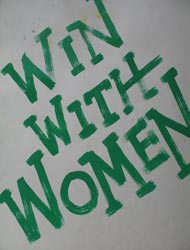
The Oregon Women’s Political History Collections constitute a large grouping of individual manuscript collections with a common focus. These collections document the continuing efforts of women in Oregon to “promote equitable representation of women and women’s interests in the decision-making process of government by maximizing the inclusion and involvement of women in political activities through education and action.” These records of organizations and the personal papers of these women activists reveal their endeavors to achieve equal human rights for all people regardless of sex, color, race, or religion. The documents evidence as well their ongoing work to promote equitable representation of women in political office at the local, state, and national levels. The collections contain correspondence, reports, financial papers, publications, conference proceedings, and training materials. The Oregon Women’s Political History Collections include the records of the Oregon Women’s Political Caucus, the records of Oregon NOW, and many collections of individual women, including the Gretchen Kafoury Papers, the Margie Hendrikson Papers, the Eleanor Davis Papers, and the Merry Demarest Collection.
Norma Paulus Papers
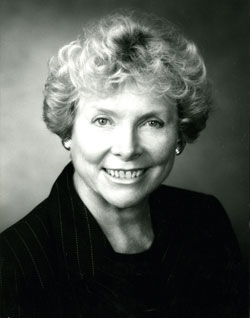
Norma Jean Petersen Paulus was born in Nebraska in 1933, and raised in Burns, Oregon, graduating from the Burns Union High School in 1950. Her first job, as a secretary to the Harney County district attorney, led to work as a legal secretary in Salem, Oregon. Oregon Supreme Court Chief Justice Earl C. Latourette encouraged Paulus to apply to law school, based on her experience and expertise. Paulus entered Willamette University Law school in 1956 and graduated with honors in 1962. She went into private practice until she entered state politics in 1969.
Barbara Roberts Papers
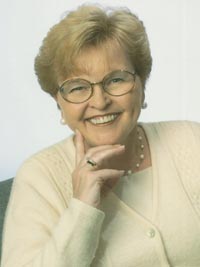
Barbara Roberts was elected the first woman Governor of the state of Oregon in 1990, serving from 1991 through 1995. During her term as Governor, Roberts worked with the Clinton administration to secure federal waivers and funding for the Oregon Health Plan. She also helped to increase the number of children in the Head Start program, secured financing for additional units of affordable housing, and developed programs to help move Oregonians from welfare to the workplace. Prior to her tenure as Governor, Barbara Roberts was a member of the Oregon House and was Oregon’s first female House Majority Leader from 1983 to 1984. She was elected as the first Democratic women elected as Secretary of State in 1984—the first Democrat in 110 years—and reelected to that position in 1988. At Hatfield School of Government at Portland State University, Roberts served as Associate Director of Leadership Development at the, and she was the founding board chair of NEW (National Education for Women’s) Leadership Oregon, a program affiliated with the school.
Betty Roberts Papers
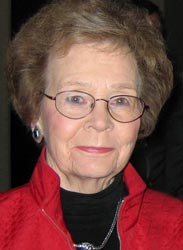
Roberts’s political career began in 1964 when she was elected as a state representative in the Oregon legislature. Four years later, she was elected the sole woman in the state Senate. In 1974 she narrowly lost the Democratic gubernatorial primary. Later in 1974, she was chosen by the Democratic Party to run for the Oregon U.S. Senate seat but was defeated by incumbent Bob Packwood. In 1977, she was appointed to the Oregon Court of Appeals, where she became the first woman judge. In 1982, appointed by the Governor, she became the first woman to serve as an associate justice on the Oregon Supreme Court. After resigning from the Court, Justice Roberts served as a mediator and arbitrator for 18 years. Oregon State University Press published her autobiography “With Grit and By Grace, Breaking Trails in Politics and Law, A Memoir” in 2008. .Noteworthy, Roberts officiated over the first same-sex partnerships licensed through Multnomah County in 2004.
Sister Miriam Theresa (Caroline Gleason) Papers
_1910,_crpd1_thumb.jpg)
Caroline Joanna Gleason was born in Minneapolis, Minnesota on March 15, 1886. Gleason received her B.A. and high school teaching certification from the University of Minnesota in Minneapolis in 1908. She relocated to Portland Oregon where she became enmeshed in the social justice movement in the state. Working with Reverend Edwin V. O’Hara (1881-1956), she became field secretary for the Catholic Women’s League, where she became interested in working women’s wages and their living and working conditions. After doing graduate work at the Chicago School of Civics and Philanthropy, Gleason was hired by the Consumer’s League of Oregon to conducted a statewide survey of women’s wages and working conditions. The data she compiled was used to pass Oregon’s minimum wage law for women and minors in 1913. From 1913-1916, Gleason served as the first executive secretary of the state’s Industrial Welfare Commission, the agency formed to enforce the law. In 1918, Caroline Gleason became Sister Miriam Theresa when she joined the Sisters of the Holy Names of Jesus and Mary and continued her social reform work as a teacher at St. Mary’s Academy and later as the Dean of the Sociology Department at Marylhurst College.
Sleeth Family Collection
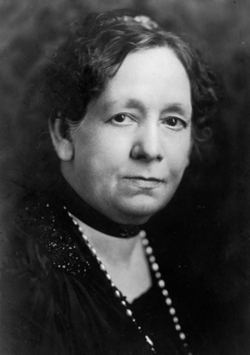
A child of the American frontier, Mattie Sleeth was a fire and brimstone Methodist preacher who honed her skills on the prairies of Kansas and Nebraska before moving to Portland where she rose to statewide prominence as a suffragist and temperance advocate. She served as the first woman juror on an Oregon State court in 1922, after having worked for the passage by the Oregon Legislature of the Woman’s Jury Law of 1921. She served as the president of the Women’s Christian Temperance Union in Oregon from 1918 to 1920, which included the period when Congress passed the Volstead Act in 1919. She ran unsuccessfully for the state legislature in 1916, all the while traveling by stagecoach, train, and car advocating statewide for women’s rights and temperance.
Chloe Clarke Willson Papers

Chloe Aurelia Clarke Willson was born in Connecticut on April 16, 1818 and received her academic training at Wilbraham Academy, a seminary that specialized in training Methodist missionaries for service around the world. In 1839 Chloe Willson joined fellow Methodists on the ship “Lausanne” traveling to the Oregon Territory as part of the “Great Reinforcement” movement led by the Rev. Jason Lee.

